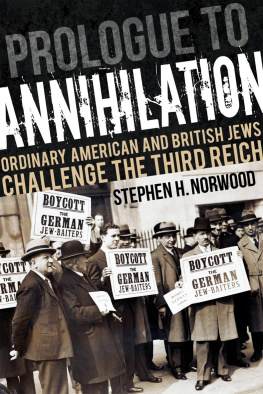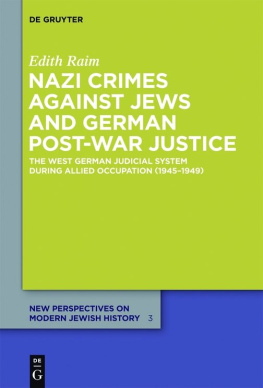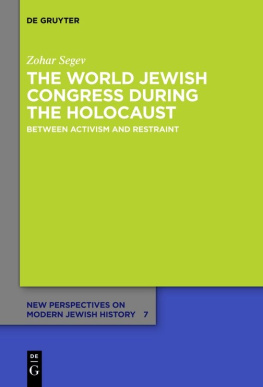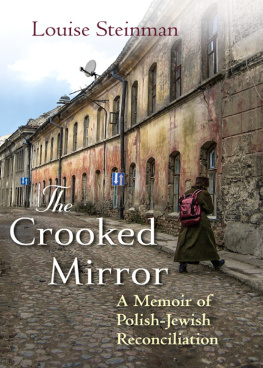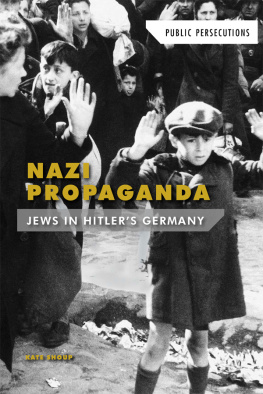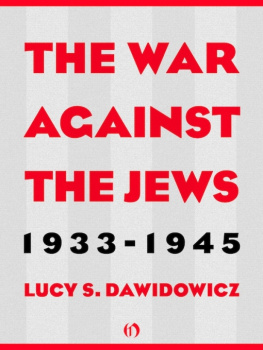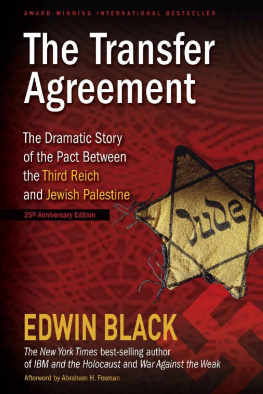Beyond Hitlers Grasp
The Heroic Rescue of Bulgarias Jews
Michael Bar-Zohar
Copyright 1998, 2013, Michael Bar-Zohar. All rights reserved.
This book, or parts thereof, may not be reproduced in any form without permission from the publisher; exceptions are made for brief excerpts used in published reviews.
Photographs from the Jacques Yulzari Private collection
Jacket design by Zahava Teper
Map by Jeffrey L. Ward
CONTENTS
FOREWORD
S ince its publication in 1998, Beyond Hitlers Grasp has had a profound impact on public opinion in the United States and abroad. The book tour has not ended yet, and audiences nationwide, in Holocaust memorials, universities, community centers, synagogues, and churches have been are exposed to the unique story of the rescue of the Bulgarian Jews. The author has spoken twice at the Washington Holocaust Museumonce introduced by the president of Bulgariaand appeared on national television, radio shows, and a multitude of press interviews.
The book was also published in Israel and Bulgaria, where President Stoyanov decorated the author with the Horseman of Madara medal. The American Anti-Defamation League distributed 20,000 copies to Bulgarian students, teachers, government officials, and Army officers, to teach the young generation what people had done to rescue their Jewish co-citizens from certain death.
The documentary based on the book, directed and produced by Nitzan Aviram, premiered in New York on December 5, 2000, to rave reviews. Since then, it has been shown in Sofia, Bulgaria to the President, the Cabinet, the Princes of the Church, and Members of Parliament. The film premiered in Israel with Foreign Minister Shimon Peres as guest of honor. It will soon be shown in London and Paris, and then on television screens worldwide. Already, large audiences in New York, Atlanta, Boston, Houston, and other cities have seen the film in special screenings.
The exceptional interest in the unique story told in Beyond Hitlers Grasp has motivated us to publish this paperback edition. We believe it will make it accessible to a larger audience... the story of the amazing events of March 9, 1943 and the following weeks, in a small country in the Balkans that dared to say No to Hitler.
INTRODUCTION
O n a glorious November day in 1948, a long freight train ground to a halt at the Bulgarian-Yugoslav border. More than a thousand Jewish passengers stepped out of the crowded boxcars, stretching their numb limbs. The night before, at Sofia station, they had set off on their long journey to a secluded harbor in neighboring Yugoslavia, to board a ship sailing for Israel. They were part of a massive wave of immigration that, in a short period of time, would carry to the newborn state of Israel more than 90 percent of Bulgarias fifty thousand Jews.
I was one of these thousands, a little boy immigrating to Israel with my parents and baby sister. I jumped out of the dark, foulsmelling boxcar and looked around. We were in a lush green valley, breathtakingly beautiful. Alongside the locomotive, Bulgarian and Yugoslav border guards examined stacks of papers. Beyond them lay Yugoslavia.
Almost as one our fellow passengers turned back, casting a long last look at the land of their birth. One began to sing, another joined him, then a third, and a fourth. Soon, hundreds of voices, male and female, young and old, joined together and echoed down the valley. They sang a tuneful Bulgarian anthem, Mila Rodino (Dear Homeland).
Dear homeland, the huge choir sang with deep emotion, youre paradise on earth. Your beauty, your charm, are endless.
I remember looking up at my parents. Both were crying. Many people, standing beside us, were singing with hoarse, choking voices, tears streaming down their faces.
Why do you cry? I asked my parents.
Because we love this country, my father said softly. Its been good to us.
I thought of the last days before our departure, in Sofia. Bulgarian friends and patients of my father kept coming to his clinic. Whats the matter, Doctor? they would ask. Why are you leaving?
We want to have our own country, my father would answer.
With a hurt expression on their faces, they would say, But this is your country. Bulgaria is your country!
The memory of Bulgaria clung to many of us when we crossed the stormy Mediterranean and settled in Israel. We carried a deep sense of pride in our Bulgarian origins. When other children would ask whether I too was a refugee, I would respond with an angry outburst and a fistfight. I am not a refugee, I would shout. I am an immigrant!
Most of us clustered in the abandoned city of Jaffa, Tel-Avivs twin. We soon transformed the former Arab city into a Bulgarian enclave. In Jaffa everything was Bulgarianthe signs on the stores, the language spoken in the streets, the food and drink sold by street vendors, the daily newspapers, the books in the public libraries, the newly formed Maccabee-Jaffa soccer team, the excellent Tzadikov choir.
While becoming ardent, patriotic Israelis, learning the language, serving in the army, discovering the Ashkenazi Jewswe still remembered Bulgaria. We recalled its rugged landscapes, its vibrant artistic and intellectual life, its picturesque villages, its yoghurt and cheeses, its majestic, snow-topped mountains, its deep blue sky. We remembered the beautiful capital of Sofia, the golden beaches of the Black Sea, the long and narrow Valley of Roses that every spring turned into a fragrant carpet of flowers in many shades of pink and red.
We remembered our Sephardic heritage. We competed at reciting proverbs and verses in Ladino, our ancient Spanish dialect. We longed for the spicy flavors and the tantalizing aroma of our traditional, Mediterranean food. We hummed the tuneful lullabies our mothers and grandmothers used to sing to us in the soft language of Cervantes.
We remembered the friends we had left behind, our homes, schools, and neighborhoods.
And most of all we remembered our rescue from the Holocaust.
Many recall, to this very day, that dreadful night in March 1943, when we were ordered to pack a few belongings into a bag and get ready to be taken away by the police. We remember the tragedy of the Thracian and Macedonian Jews who were deported, through Bulgarian territory, to the death factories of Treblinka. We can still describe the long trains of boxcars waiting for the Bulgarian Jews at the railway stations. We remember the crying, the despair, the terrible feeling of doom and impending death, and the ominous mention of camps in Poland, which meant cruel annihilation.
But we were not taken away. The boxcars left the stations, empty. We didnt know exactly what had happened, but the Jews of Bulgaria were saved at the very last minute.
In May 1943 a second deportation attempt was made, and the orders were canceled once again. Not one Bulgarian Jew was deported from the kingdom. The entire Jewish community survived the war, beyond Hitlers grasp. As the years went by, and the true facts about the war years surfaced, we were amazed by the incredible story of our rescue.
In 1993 I came to Emory University in Atlanta, Georgia, as a visiting professor. I met with scholars, historians, and political scientists from throughout the United States. I was amazed to discover that the rescue of the Bulgarian Jews was almost completely unknown. There were publications concerning the Danish rescue, the Italian rescue, about Raoul Wallenberg, Chiune Sugihara, and Oskar Schindler, but nothing about Bulgaria.
I spoke about the Bulgarian rescue at several occasions. People would stand up and say: This is a wonderful story, but it cant be true. If it were true, we would have known about it.
I thought that the unique story of the Bulgarian rescue, the largest and most dramatic rescue during World War II, deserved to be told.
Next page

